Can Dogs Eat Pork Bones? 7 Surprising Benefits and Dangers of Feeding Pork Bones to Dogs
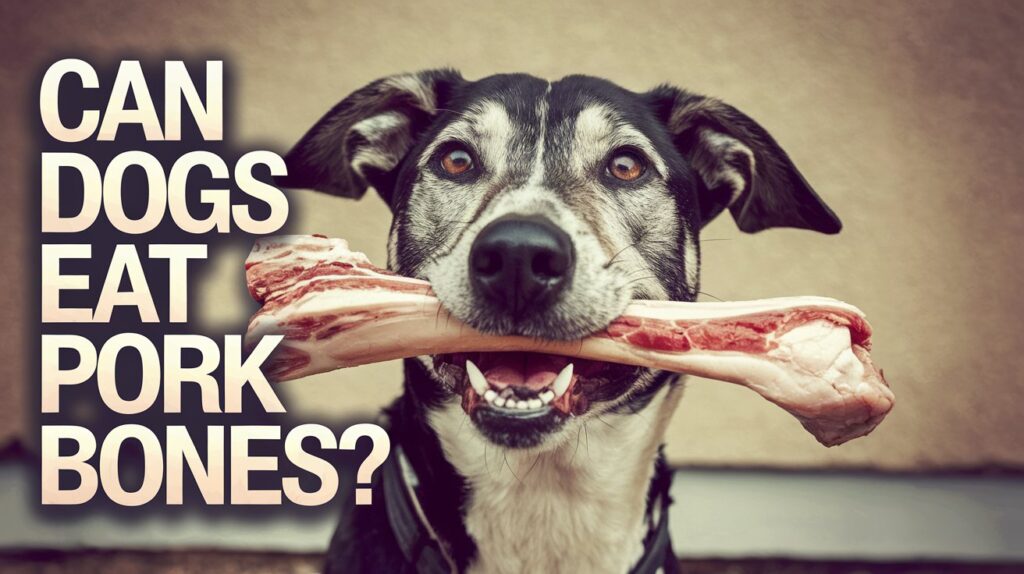
Can Dogs Eat Pork Bones?
What Are Pork Bones?
Pork bones are the skeletal parts of a pig, commonly used in cooking for their flavor and nutrient content. They include various types such as rib bones, neck bones, shank bones, shoulder bones, and trotters. When given to dogs, they should be raw to avoid splintering and potential health risks.
Types Of Pork Bones: Can Dogs Eat Pork Bones
Here are five types of pork or pork bones that are often considered for dogs:
- Raw Pork Rib Bones: These are popular for their size and the fact that they are less likely to splinter compared to cooked bones.
- Pork Neck Bones: These bones are meaty and can provide a good chew for dogs, but they should always be given raw to avoid splintering.
- Pork Shank Bones: These are large and sturdy bones that can keep a dog occupied for a long time. They should be raw to ensure they do not splinter.
- Pork Shoulder Bones: These bones are also large and meaty, providing both a chewing challenge and a tasty treat for dogs. Again, they should be raw.
- Pork Trotters (Pig Feet): These contain bones, skin, and some meat, making them a nutritious and enjoyable chew for dogs. They should be given raw to prevent splintering and preserve nutritional value.
Can a Dog Eat Raw Pork? Can Dogs Eat Pork Bones
Feeding raw pork to dogs is generally not recommended due to the risk of parasites and bacterial infections. Raw pork can harbor Trichinella parasites, which cause trichinosis, and bacteria such as Salmonella and E. coli, which can lead to serious illness. If you choose to feed your dog raw pork, it should be sourced from a reliable, high-quality supplier and frozen for a sufficient period to kill parasites. However, it’s best to consult your veterinarian before including raw pork in your dog’s diet to ensure safety and appropriateness.
Feeding raw pork to dogs can lead to several health issues. Symptoms of potential problems include:
- Gastrointestinal Issues: Vomiting, diarrhea, and abdominal pain are common signs of bacterial infections or parasites.
- Fever: A dog infected with Trichinella or other pathogens may develop a fever.
- Lethargy: Dogs may become unusually tired or weak if they are suffering from an infection or parasitic disease.
- Loss of Appetite: An affected dog might refuse to eat or show a decreased interest in food.
- Muscle Pain or Swelling: In cases of trichinosis, dogs might experience muscle pain, swelling, or stiffness.
If you observe any of these symptoms after your dog has consumed raw pork, it is essential to contact your veterinarian promptly.
Can a Dog Eat Cooked Pork?
Yes, a dog can eat cooked pork, but there are important considerations:
- Plain and Unseasoned: Ensure the pork is cooked without any added seasonings, spices, or sauces, as some ingredients can be harmful to dogs.
- Proper Cooking: Cook the pork thoroughly to avoid any risk of bacterial infections or parasites.
- Remove Bones: Avoid giving your dog pork bones, whether cooked or raw, as they can splinter and cause choking or internal injuries.
- Moderation: Pork should be given in moderation as a treat, not as a main diet component, due to its high fat content which can lead to obesity or pancreatitis if fed in excess.
Signs of pancreatitis in dogs include:
- Vomiting: Frequent or severe vomiting is a common symptom of pancreatitis.
- Diarrhea: Soft or watery stools may occur.
- Abdominal Pain: Dogs may show signs of discomfort or pain when their abdomen is touched.
- Lethargy: Increased tiredness or lack of energy can be a sign of pancreatitis.
- Loss of Appetite: A sudden decrease in food intake or refusal to eat.
- Fever: Elevated body temperature may be present.
- Dehydration: Signs include dry gums, excessive thirst, or a lack of skin elasticity.
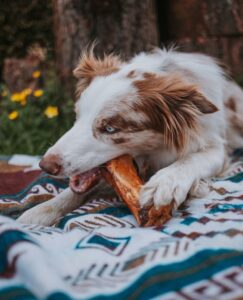
What Pork Bones Are Not Safe for Dogs? Can Dogs Eat Pork Bones
Not all pork bones are safe for dogs to chew on. Here are the types of pork bones that are generally considered unsafe:
- Cooked Pork Bones: These bones can splinter easily when chewed, potentially causing choking, mouth injuries, or damage to the digestive tract.
- Small or Brittle Bones: Small bones, or those that can break into small pieces, pose a risk of choking or intestinal blockage.
- Spiced or Seasoned Bones: Bones that have been seasoned, especially with spices that are toxic to dogs (like garlic or onion powder), should be avoided.
- Leftover Table Bones: Bones from cooked meals, especially those with any added ingredients, should be kept away from dogs.
Can Pork Bones Produce Food Allergy in Dogs? Can Dogs Eat Pork Bones
Yes, pork bones can potentially trigger food allergies in dogs. While pork itself is not one of the most common allergens, some dogs may develop an allergy or sensitivity to it. Symptoms of a food allergy to pork can include itching, digestive issues like vomiting or diarrhea, and skin irritations. If you suspect your dog may be allergic to pork bones or any other food, it’s important to consult your veterinarian for a proper diagnosis and treatment plan.
What Kinds of Pork Bones Are Safe for Dogs?
Can a Dog Eat Ham or Bacon?
Dogs can eat ham or bacon, but these foods are not recommended as regular treats due to several health concerns:
- High Fat Content: Both ham and bacon are high in fat, which can lead to obesity and pancreatitis in dogs if consumed in excess.
- Sodium: These meats are often heavily salted, which can contribute to high blood pressure and other health issues in dogs.
- Additives and Preservatives: Processed ham and bacon can contain additives, preservatives, and seasonings that may be harmful to dogs.
- Risk of Gastrointestinal Upset: The high-fat content and salt can cause gastrointestinal problems such as vomiting or diarrhea.
What are Healthy Meat Alternatives?
Healthy meat alternatives for dogs include:
- Chicken: Lean and easily digestible, chicken is a good source of protein. Ensure it’s cooked and boneless.
- Turkey: Another lean protein option, turkey is often well-tolerated and provides essential nutrients. Avoid feeding the skin or any seasoning.
- Fish: Salmon and whitefish are rich in omega-3 fatty acids and protein. Cook the fish thoroughly and remove any bones.
- Beef: Lean cuts of beef are a good protein source. Avoid fatty cuts and ensure it’s cooked thoroughly.
- Lamb: A less common protein source that can be beneficial for dogs with sensitivities to more common meats. Cook it well and avoid excess fat.
- Venison: An alternative protein source for dogs with allergies or sensitivities to more common meats. Ensure it’s cooked properly.
- Eggs: Cooked eggs are a high-quality protein source and provide additional nutrients. Serve them scrambled or boiled without any added ingredients.
Always introduce new foods gradually and consult with your veterinarian to ensure they meet your dog’s dietary needs and to avoid any potential allergies or intolerances.
Can Dogs Die from Pork?
Dogs can potentially suffer serious health issues from consuming pork, but it is rare for them to die solely from eating pork if it is prepared and given properly. Risks associated with feeding pork include:
- Parasites and Bacteria: Raw pork can contain Trichinella parasites and harmful bacteria like Salmonella or E. coli, which can cause severe illness or, in extreme cases, be life-threatening.
- Pancreatitis: Pork, especially fatty cuts or cooked bones, can trigger pancreatitis, a serious condition that requires prompt veterinary treatment.
- Choking and Internal Injuries: Cooked pork bones can splinter and cause choking or internal injuries.
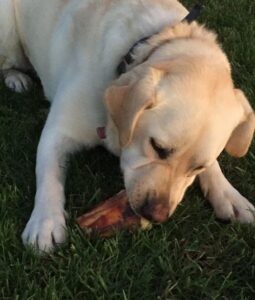
Conclusion: Can Dogs Eat Pork Bones?
Feeding pork and pork bones to dogs requires careful consideration of safety and health risks. While pork can be included in a dog’s diet, it should be cooked thoroughly and served without seasonings or additives. When it comes to the question, “Can dogs eat pork bones?”—the answer is yes, but with caution. Cooked pork bones can pose significant risks such as splintering, choking, and internal injuries, while raw pork bones are somewhat safer but still require careful handling.
FAQS: Can Dogs Eat Pork Bones
Can a Dog Eat Raw Pork?
No, raw pork is generally not recommended for dogs due to the risk of Trichinella parasites and harmful bacteria like Salmonella. Cooking the pork reduces these risks but doesn’t eliminate them. Always consult your veterinarian before feeding raw pork.
Are Pork Bones Good for Dogs?
Pork bones can be beneficial if raw and appropriately sized, offering dental benefits and mental stimulation. However, cooked pork bones can splinter and cause choking or internal injuries. Always supervise and consult your vet.
Can a Dog Eat Ham or Bacon?
Dogs can eat ham or bacon in small amounts, but they are high in fat and sodium, which can lead to obesity and health issues. Processed meats also often contain additives harmful to dogs. It’s better to offer these only occasionally and in moderation.
What Are Healthy Meat Alternatives?
Healthy meat alternatives include lean proteins like chicken, turkey, fish, beef, lamb, and venison, as well as cooked eggs. These options provide balanced nutrition without the risks associated with high-fat or processed meats. Always introduce new foods gradually and consult your vet.
Can Dogs Die from Pork?
While rare, serious health issues from pork can be life-threatening if not addressed, such as trichinosis from raw pork or pancreatitis from fatty pork. Properly prepared pork and bones are safer, but always consult your veterinarian for specific advice.
Can Dogs Eat Pork Bones?
Dogs can eat pork bones, but cooked pork bones are particularly dangerous as they can splinter and cause choking or internal injuries. Raw pork bones are somewhat safer but still require caution. Always consult your vet for guidance on safe feeding practices.
Can Dogs Eat Baked Beans

Jahanzaib Kaleem is a passionate and knowledgeable pet writer and veterinarian dedicated to enhancing the well-being of pets and educating pet owners around the world. With years of experience in veterinary medicine and a deep love for animals, Jahanzaib combines his medical expertise with a flair for writing to deliver insightful and practical advice on pet care.

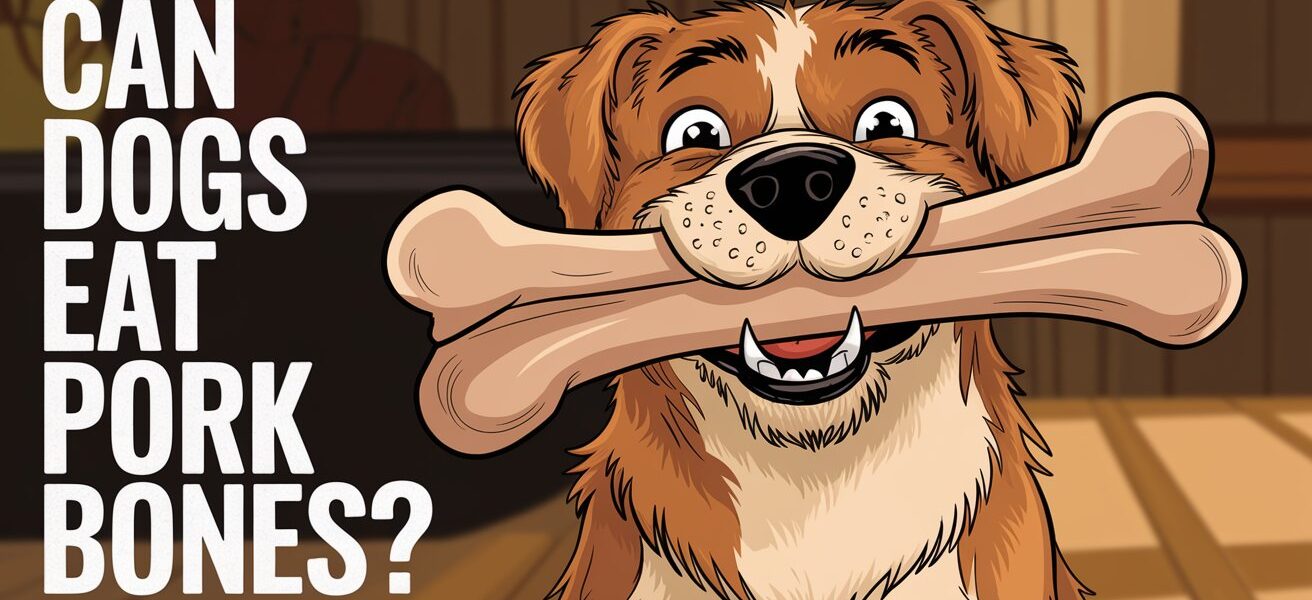




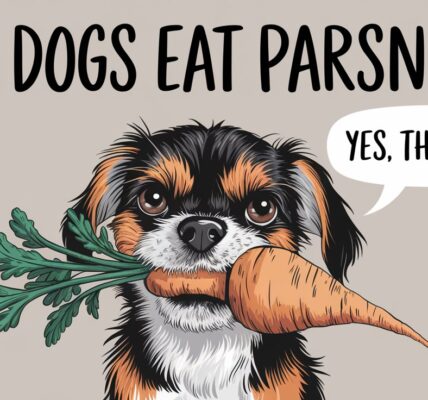
2 COMMENTS